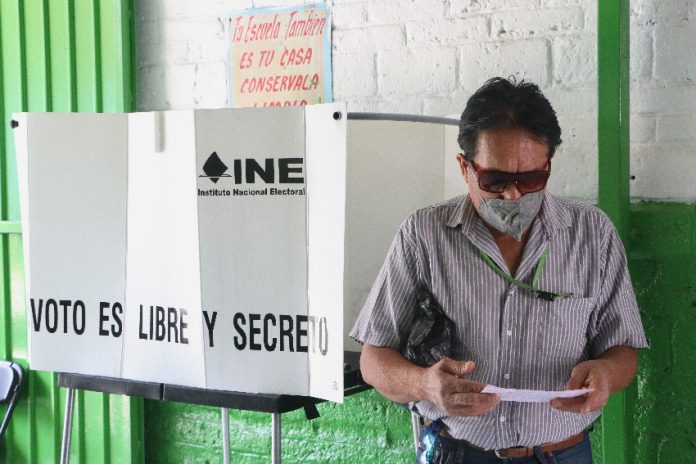The Senate on Wednesday approved a major electoral reform package proposed by President López Obrador, legislation that critics say will significantly weaken the National Electoral Institute (INE) and thus pose a threat to upcoming elections.
A second part of the so-called “Plan B” reform will now be promulgated by López Obrador, who has been highly critical of the electoral institute and its president, Lorenzo Córdova.
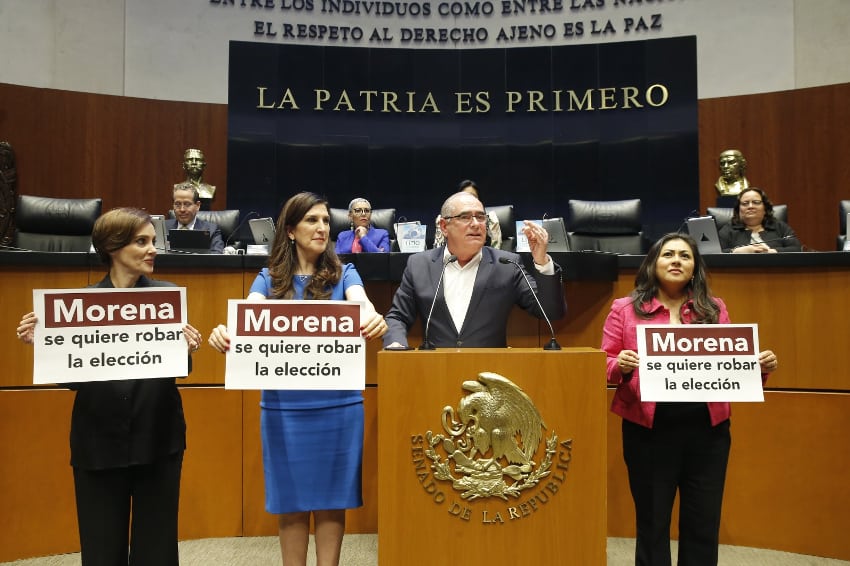
The reform will slash INE’s budget and therefore force the dismissal of staff, diminish its capacity to sanction politicians who violate electoral laws, curtail its autonomy and close some INE offices, among other consequences
Seventy-two senators with the ruling Morena party and its allies voted in favor of the legislation, which was put forward after a more ambitious constitutional bill to overhaul Mexico’s electoral system was blocked late last year, while 50 opposition lawmakers opposed it. The reform modifies secondary laws rather than the constitution and consequently only required a simple majority to pass Congress.
“What the government is proposing is the destruction of INE,” said National Action Party (PAN) Senator Lilly Téllez. She accused Morena lawmakers of “selling the homeland” and claimed that López Obrador’s aim is to “cheat” in upcoming elections, including the 2024 presidential election.
Many opposition lawmakers indicated they would challenge the reform in the Supreme Court, a likelihood López Obrador acknowledged at his regular news conference on Thursday morning.
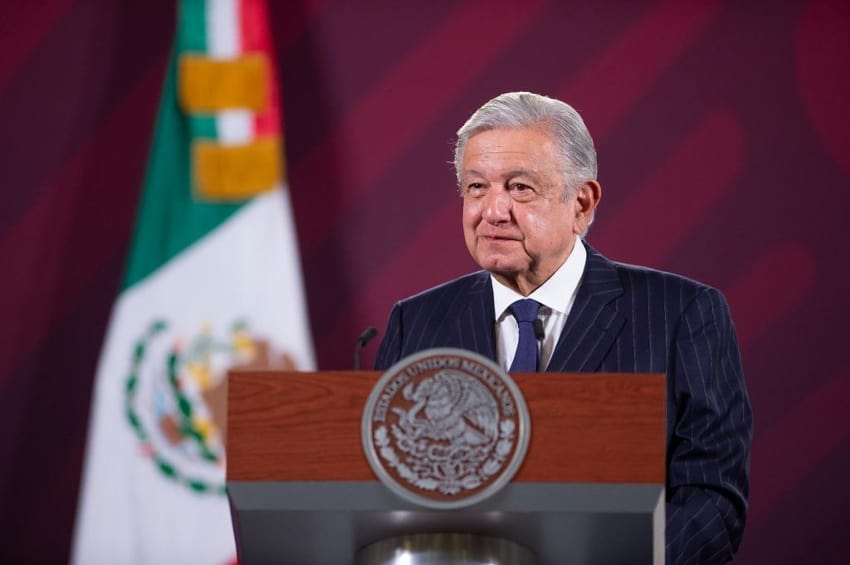
“We’re going for Plan C – that of the citizens,” said PAN Senator Alfredo Botello in reference to the proposed legal action.
The Supreme Court has already ruled that modifications to the Social Communication Law and the General Administrative Responsibility Law that were included in a separate “Plan B” reform package that was approved last year won’t apply in the lead-up to state elections in Coahuila and México state this year. A veda electoral – a period of pre-election silence that prevents politicians including the president from campaigning – will consequently remain in place before the two gubernatorial elections.
Much of the debate prior to Wednesday’s vote focused on a clause backed by Morena’s allies that would have allowed major parties to transfer votes to their smaller coalition partners to avoid their possible deregistration. Parties are deregistered if they fail to attract a minimal level of support from voters at elections.
The so-called “political parties’ eternal life” clause was excluded from the reform package before Wednesday’s vote in the Senate, but it is set to be reconsidered at a later date.
INE said on its official Twitter account that the “Plan B” reform passed on Wednesday “would place equity and transparency at risk” in upcoming elections because political parties and candidates won’t be required to report pre-campaign income and expenses.
It said last month that approval of the reform would force the dismissal of almost 6,000 employees, a figure equivalent to about one-third of the INE workforce.
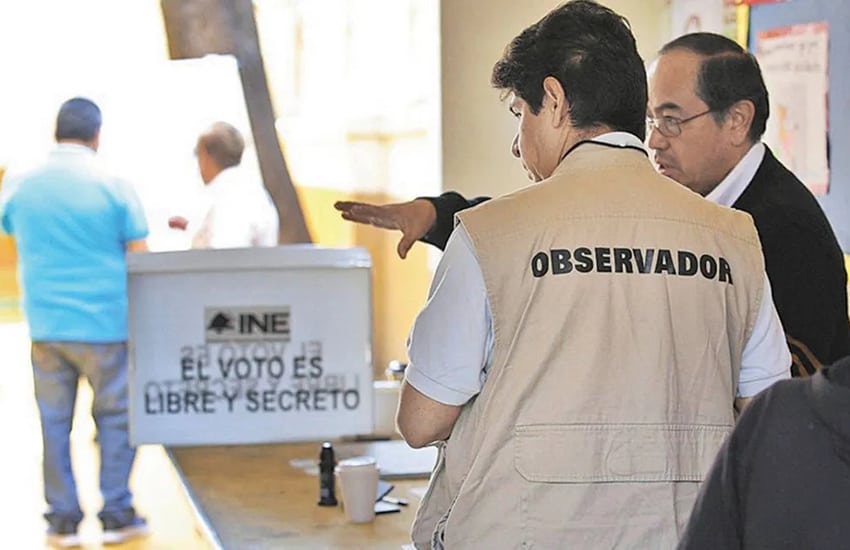
Luis Carlos Ugalde, president of the Federal Electoral Institute (the forerunner to the INE) from 2003 to 2007, said last week that the capacity of the electoral institute to organize elections would be adversely affected by the approval of the reform. He raised concerns about the capacity of a diminished INE to install 160,000 voting booths for the 2024 election and count votes in an accurate and timely fashion.
The current INE president has voiced similar concerns himself.
“One would think that in an environment where Morena is in government and has more probability of winning [in 2024] … that it would sow conditions to provide certainty, tranquility and a level playing field, Ugalde said.
Polls show that López Obrador retains the support of a majority of Mexicans more than four years into his presidency and that Morena’s candidate at the 2024 election – most likely Mexico City Mayor Claudia Sheinbaum or Foreign Affairs Minister Marcelo Ebrard – will become Mexico’s next president.
Opposition lawmakers lined up on Wednesday to denounce the electoral reform and excoriate Morena for ensuring its passage through Congress.
Institutional Revolutionary Party (PRI) Senator Claudia Ruiz Massieu accused the ruling party of using its congressional majority to “blow up the foundations” of democracy in Mexico.
“They’re not seeking to improve the system but … to have unfair advantages,” she said.
“… The opposition is going to the Supreme Court to challenge this backward step … and we’re also taking to the streets,” Massieu said, acknowledging protests set to take place in cities across the country this Sunday.
“I’m going to march this Sunday because I’m going to defend democracy,” said PAN Senator Xóchitl Gálvez.
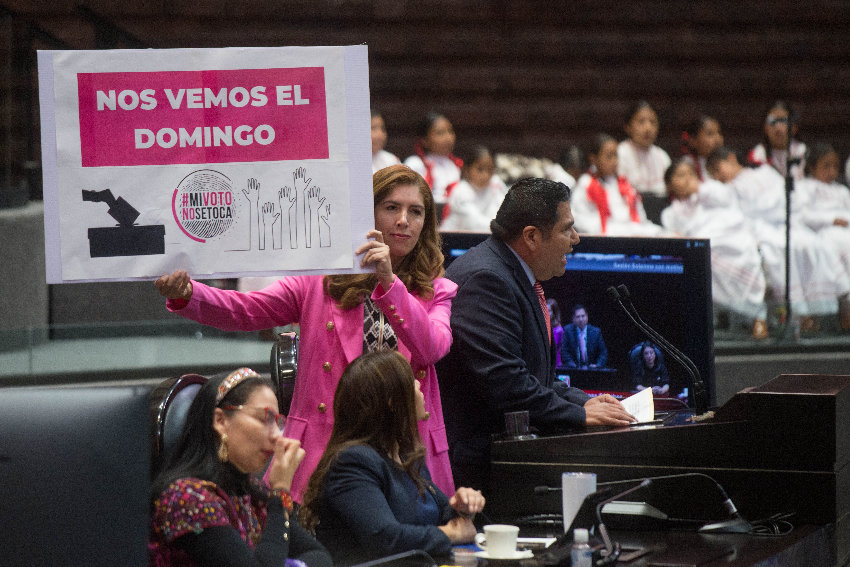
“… [They say] they want to save money, but why don’t they complain about the embezzlement that’s happening at [the] Dos Bocas [oil refinery],” she said in an apparent reference to a sharp increase in construction costs.
PAN Senator Damián Zepeda asserted that the reform “mutilates” the INE, leaving it “incapable of carrying out its work.”
For his part, independent Senator Emilio Álvarez Icaza described the reform as the “most regressive” legislation of the past 30 years.
“[Morena] wants to maintain power illegitimately and illegally. They want to put their hands in the ballot box and change the will of the people,” he said.
PAN senators held up signs in the upper house that asserted that “Morena wants to steal the [2024] election.”
López Obrador has rejected claims that the reform places the staging of free and fair elections at risk while touting 3.5 billion pesos (US $190.5 million) in annual savings it will generate – money he would prefer to spend on government welfare and infrastructure programs.
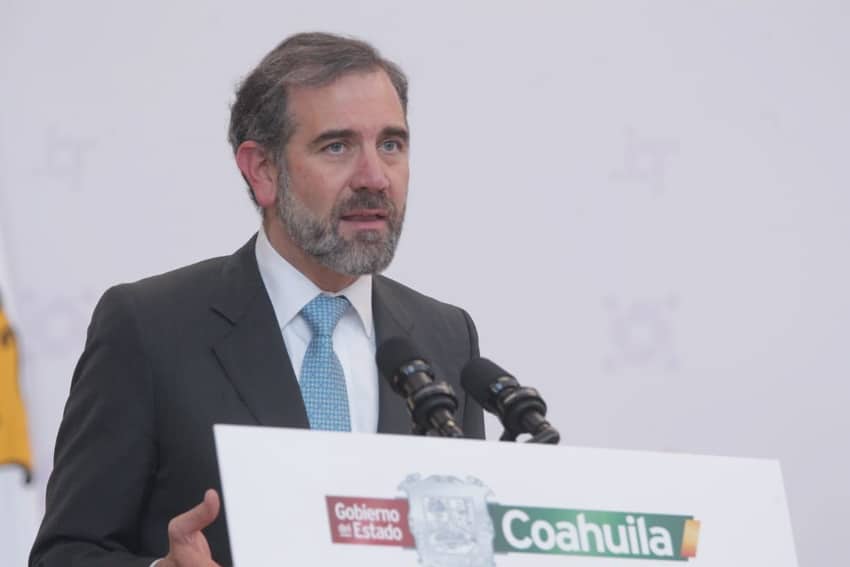
Córdova, the INE chief, said Thursday that payouts to employees of the same amount will be required due to the dismissals necessitated by the reform. He said last month that the “Plan B” reform would “blow up the elections” and called on citizens to present “all legal resources within their reach to stop” it.
Córdova, whose eight-year term as INE president ends in April, said Thursday that “it’s better to go to the elections in 2024 with the rules that have given us political stability and not play the sorcerer’s apprentice with a collection of norms that reinvent the electoral system.”
Established in 1990, the Federal Electoral Institute oversaw Mexico’s transition to full democracy after the country was ruled uninterruptedly by the PRI for over 70 years until the PAN triumphed at the 2000 presidential election.
Poll results published by the Reforma newspaper last November showed that 80% of respondents believe that the INE has played an important role in guaranteeing democracy in Mexico while 71% said that its demise would pose a threat to democracy.
López Obrador blames the institute for his narrow loss at the 2006 presidential election, accusing it of perpetrating electoral fraud. He led mass protests against the official result and had himself sworn in as Mexico’s “legitimate president” in an event held in the Zócalo, Mexico City’s central square.
López Obrador said in late January that Córdova was a “public servant without principles or ideals” and “a fraud.”
The president also charged that the INE has been taken over by “conservatives” and that he won the 2018 election “despite them.”
He predicted Thursday that his “Plan B” reform would survive legal challenges because nothing in it is “outside the law.”
With reports from El País, Animal Político, Expansión Política, El Financiero, Reforma and AP
